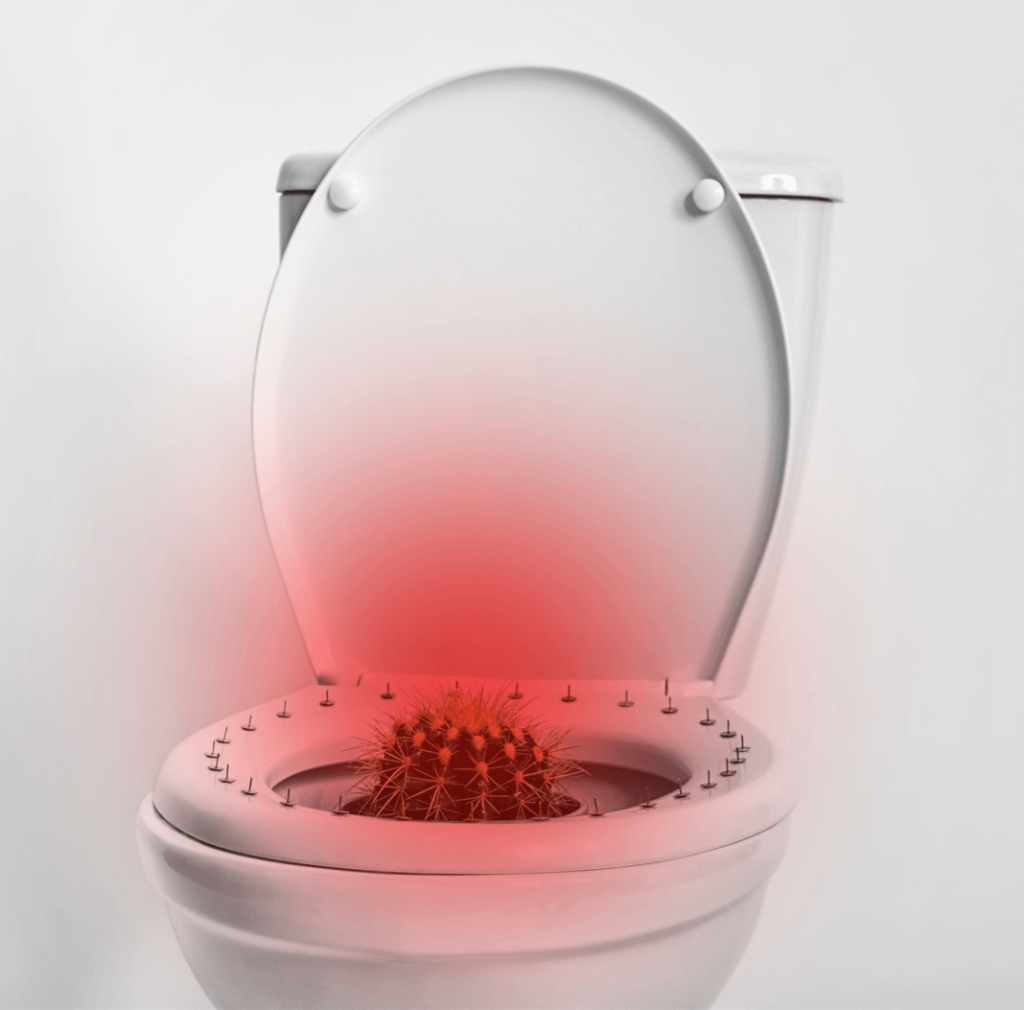As the holiday season approaches, your schedule becomes as packed as a mall on Black Friday, leaving little time to address personal health issues like anal fissures. However, preventing and treating anal fissures are absolutely needed.
You’re rushing to wrap up year-end projects and plan family gatherings, but neglecting the discomfort down there could lead to a more serious condition that no one wants as their plus-one to holiday festivities.
It’s crucial to understand how to prevent and manage these painful tears, especially when you’re less attentive to your body’s needs during the hustle and bustle.
You’ve got the will to juggle the seasonal challenges, but do you know the way to keep anal fissures at bay? Stay tuned to discover simple yet effective strategies that can help you maintain your health and comfort, even when your calendar is bursting at the seams.
Preventing And Treating Anal Fissures: Takeaways
- Increase fiber intake and maintain a high-fiber diet to prevent anal fissures.
- Take warm sitz baths and use gentle wipes for relief from symptoms.
- Stay adequately hydrated and consume fruits and vegetables high in water content.
- Seek medical advice if symptoms persist or worsen or if there is excessive bleeding or severe pain during bowel movements.

Recognizing Anal Fissure Symptoms
If you experience pain during bowel movements and notice bright red blood on your stool, you may be exhibiting common symptoms of an anal fissure.
This condition often results from straining during bowel movements or chronic constipation, which can cause small tears in the lining of your anal area. It’s important to recognize these symptoms early to manage the condition effectively.
You might also experience itching or irritation around the anus, another sign pointing to anal fissures. In some cases, a visible tear or crack near the anus confirms the presence of a fissure.
Additionally, muscle spasms in the anal sphincter can accompany the discomfort, further indicating this ailment.
To alleviate symptoms and promote healing, increasing your fiber intake is essential, as it can soften stools and reduce straining.
Over-the-counter stool softeners may also be beneficial. Sitz baths, warm water baths specifically for the anal area, can provide relief and aid in the healing process.
Dietary Adjustments for Prevention
While addressing symptoms of anal fissures is crucial, adopting dietary adjustments can play a significant role in preventing their occurrence, especially during the holiday season when routines may vary.
To prevent anal fissures, focus on eating more fiber, aiming for 38 grams daily if you’re a man and 25 grams if you’re a woman. A high-fiber diet helps soften stools, allowing for easier passage and reducing the strain during bowel movements that can lead to fissures.
Incorporating fiber-rich foods into your meals, such as fruits, vegetables, whole grains, and legumes, is essential.
If you’re falling short, consider fiber supplements like psyllium, methylcellulose, or polycarbophil. These can aid digestion and stave off constipation and diarrhea, both of which contribute to the formation of hard stools and the risk of fissures.
Drinking plenty of fluids is another key strategy. Hydration keeps your stools soft, and consuming fruits and vegetables high in water content supports this goal.
If necessary, stool softeners, which are distinct from laxatives, can be used to introduce more water into the digestive tract, alleviating constipation.
Lastly, uphold good personal hygiene. Avoid harsh wipes that can irritate the area, opting instead for gentle, fragrance-free wet wipes to maintain cleanliness and comfort.
Home Remedies for Relief
To alleviate the discomfort of anal fissures at home, consider starting with a warm sitz bath to soothe the affected area. This simple and effective home remedy involves sitting in high water that covers the hips and buttocks for 10 to 15 minutes, which can relax the sphincter muscles and promote healing.
Incorporating lifestyle changes is crucial in managing anal fissures. Prioritize a diet high in fiber and maintain a high water intake to prevent straining to pass hard stools. Over-the-counter stool softeners can also be beneficial in making bowel movements less painful.
To keep the area clean and reduce irritation, gently wash the perianal region and avoid using harsh wipes that can aggravate the fissure. Applying over-the-counter remedies like 1% hydrocortisone cream or a protective layer of petroleum jelly can provide relief and support the healing process.
It’s important to remember that these home remedies are part of a holistic approach to treating anal fissures. While they offer comfort and aid in recovery, persistent or severe cases may require medical attention. If symptoms continue, don’t hesitate to consult with a healthcare professional to explore additional treatment options.

Hydration’s Role in Treatment
Building on the foundation of home remedies, staying adequately hydrated is a key component in the treatment and prevention of anal fissures. Hydration is vital in keeping the digestive tract functioning smoothly, which in turn can help prevent the hard stools that exacerbate fissures.
By ensuring you drink enough water and consume fruits and vegetables high in water content, you maintain the hydration necessary for soft stools that are easier to pass, thus reducing the strain during bowel movements.
Adequate hydration, coupled with a diet rich in dietary fiber, supports regular bowel movements and helps keep constipation at bay, a common precursor to the development of anal fissures.
If you’re struggling with maintaining soft stools, over-the-counter stool softeners can be an adjunct to proper hydration, but they shouldn’t replace the role that water plays in your digestive health.
What Is a 6 O’clock Fissure?
A 6 o’clock fissure is an anal tear at the posterior midline, causing pain. You’ll need dietary changes, fiber, hydration, stool softeners, sitz baths, ointments, stress reduction, and physical activity for healing and comfort.
When to Seek Medical Advice
If your symptoms of an anal fissure persist or worsen despite home care, it’s crucial to seek medical advice promptly. While the causes of anal fissures can often be managed with conservative treatments, persistent issues may require professional intervention.
Preventing anal discomfort and complications is paramount, and understanding when to obtain medical advice is a key component of your health strategy.
Excessive bleeding—referred to as ‘Causes Blood’ in your stool—alongside severe pain during bowel movements, should trigger an immediate consultation with a healthcare provider.
These symptoms could signify a more serious condition that needs to be addressed. Keeping the area clean and using over-the-counter stool softeners may alleviate discomfort, but they aren’t substitutes for medical expertise.
Moreover, if you’re experiencing fever, chills, or signs of infection in the anal area, it’s imperative to contact your doctor. Those with a history of inflammatory bowel disease or Crohn’s disease should be especially vigilant, as an anal fissure could exacerbate underlying issues.
To treat an anal fissure effectively and prevent future occurrences, personalized medical advice tailored to your specific needs is essential. If you encounter recurrent anal fissures or are uncertain about your symptoms, don’t hesitate to reach out to your healthcare provider for further evaluation and treatment recommendations.
Final Note From Dr. Rajarshi Mitra
As you navigate the festive flurry, remember that self-care is paramount. Think of your digestive health as the silent night amidst the holiday clamor, peaceful and unstrained.
Keep the waters flowing and your plate fiber-rich to ward off any unwelcome fissures. Should discomfort arise, don’t play Scrooge with your well-being—seek medical guidance.
By heeding these tips, you’ll ensure your holiday season remains merry and bright, free from the shadow of anal discomfort.



















